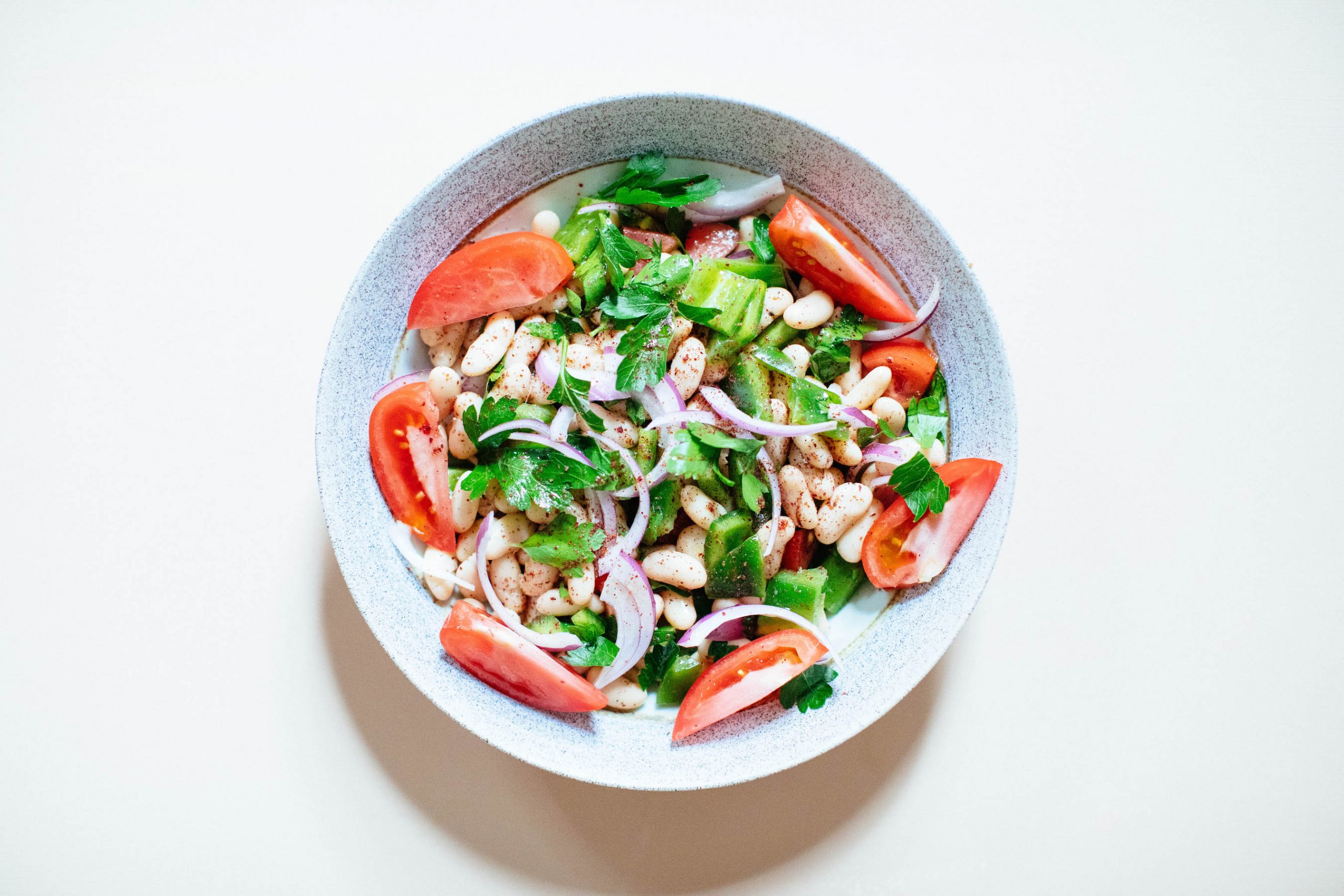When emotional eating becomes a habit where you’re experiencing perpetual, repetitive grief from it, it’s time to dive deep into those emotions and create some balanced practices for navigating them.
I’m willing to bet just about everyone has experienced emotional eating at one point or another in their lives. That’s normal — we’re all human!
But when the habit is formed and it’s left unaddressed, emotional eating can cause a great deal of added stress, anxiety, and guilt. It can ultimately lead you down a pathway towards an unhealthy relationship with food and possibly cause further mental and physical health challenges.
So let’s explore exactly what emotional eating is, how to determine if you’re doing it, and a few ways you can begin coping with your emotions differently.
What is Emotional Eating?
Emotional eating is when your emotions — anything from boredom to stress or grief — are guiding what, when, and how much you eat.
Emotional eating doesn’t just have to be in response to a major life event or intense news. It can also take place in response to day-to-day emotions such as boredom, loneliness, stress, anxiety, and even excitement.
It’s characterized by a loss of control around food while in an emotional state. Not only do we reach for food when we’re feeling emotional, but we often lack the ability to know our limits and exert restraint in response to satiety cues.
Are You Emotionally Eating?
Ask yourself the following 5 questions to determine whether or not you’re emotionally eating:
- Do you find comfort in food when you’re emotional?
- Do you tend to eat until you’re stuffed or uncomfortable when you’re feeling stressed or overwhelmed?
- Do you have trouble discerning the difference between hunger for food and want for food?
- Do you often use food as a reward?
- Do you feel out of control around food?
If you said yes to 3 or more of those questions, you are most likely emotionally eating.
How To Navigate Emotional Eating
Emotional eating is often a habit more than anything else.
We start to use food to soothe and cope with emotions unknowingly. Eventually, before we know it we’re reaching for the bag of salty chips and chocolate ice cream every time work stress boils over.
In order to properly navigate emotional eating, we need to create a new habit. A habit of identifying our emotions, acknowledging when we reach for food for emotional reasons, and determining new ways to cope without food.
One of the best ways to do this is to utilize mindful eating!
Mindful Eating to Address Emotional Eating
Broadly speaking, mindful eating is a practice that allows you to be more intentional with your eating habits while also maintaining a healthy relationship with food.
When we’re eating as a result of our emotions, we tend to disconnect from the ritual and experience of eating. This is when you decide to have a couple of cookies to help you cope with your emotions, then before you know it you look down and the entire box is gone.
Hunger cues? What hunger cues?
Practicing mindful eating will allow you to connect with your food, appreciate it, and take control of your choices.
1. Check-In With Yourself
The idea that you want food pops into your head. You proceed to go through the motions of obtaining said food, then consume the food and go on with your day. Right?
But how often are you checking in with yourself after you decide you want the food and before you obtain the food?
Simply checking in with yourself can make a world of a difference when it comes to emotional eating.
It can be hard at first to differentiate when you’re truly eating due to hunger and when you’re eating in response to your emotions. Try checking in with yourself before you eat, every time you eat for just a day or two. Think of it as an experiment! Ask yourself, am I physically hungry? If not, how am I actually feeling?
This seemingly mundane, simple exercise can tell you a lot about your emotional eating habits and tendencies.
2. Get To Know Your Hunger Cues
So what’s the deal with hunger cues?
Your hunger cues are your body’s way of signaling the need for energy or food. It’s a physical feeling or sensation triggered by a hormone called ghrelin. Ghrelin notifies your brain when it’s time to increase appetite and seek out food.
When emotions start dictating when and how we eat, it can be very easy to get into the habit of ignoring these hunger cues and simply eating when we want to.
Take some time to reconnect with your body and listen to your hunger cues. When do you feel the sensation of hunger? How long does it usually take after a meal before you feel hungry again?
The better you understand your hunger cues, the easier it will be to call yourself out when you’re ignoring them.

3. Utilize Journaling
You can use journaling to address the emotions you’re feeling. Maybe you’ve determined that when you’re stressed about work, you always reach for food.
Dive into that work stress. What is it caused by? Is any of it in your control? Are there things out of your control that you need to let go of?
Use journaling as a means to explore your emotions and work through them.
4. Redirect Your Energy
Habits are hard to break, we can all agree with that.
Yet with that being said, replacing old habits with new habits is a tried and true method for bridging the gap to behavior change.
Sometimes emotional eating can occur like clockwork. Maybe every evening after a long day you decompress and think about all of the stressors you’re currently facing, and subsequently, turn to food for comfort.
By redirecting your energy to something new when this urge arises, you can start to break your existing emotional eating habit and replace it with a new one.
Maybe you take out your journal, read a book, or make yourself a cup of hot tea. Whatever it is, make sure it’s something you truly enjoy, and not something you’re just doing because you should or have to.
It’s important to note that this is just one piece of the puzzle. Simply redirecting your energy won’t address the issue in its entirety, but when combined with the previous tactics we’ve discussed, your chances are looking pretty good!
Put This Into Practice
Getting started is always the hardest part. Sometimes all we need is a little extra support!
Inside the Mindful Nutrition Method , we teach our members how to build their own, unique, positive relationships with food. We give them the tools, resources, and knowledge they need to nourish themselves confidently.
, we teach our members how to build their own, unique, positive relationships with food. We give them the tools, resources, and knowledge they need to nourish themselves confidently.
Members are able to recalibrate their relationships with food to move past emotional eating and move forward with mindfulness and ease. Having a positive relationship with food is having power and autonomy over your life and your choices, which is a beautiful thing!
Watch The Free Masterclass
The post Emotional Eating: How Emotions Influence Your Eating Behaviors appeared first on Nutrition Stripped®.
Erica Carneglia
Comments
Post a Comment